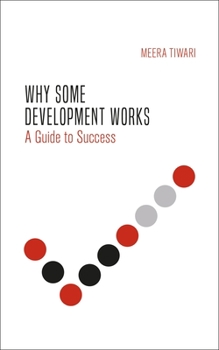Why Some Development Works: Understanding Success
Why do some development projects succeed where others fail? This book looks at the overlooked success stories and considers what enabled them to alleviate poverty in some of the world's most deprived communities. Using case studies from ten countries across Latin America, Africa and Asia, Tiwari's innovative approach offers a multi-layered understanding of poverty which provides insights into causal, enabling and impeding factors.
While a macro level analysis of development is a common feature of the current literature, there has been little attempt to develop a micro level understanding of development at the grassroots. Tiwari's work fills this important gap while drawing attention to the importance of engaging local actors at an individual, collective and state level, demonstrating how achieving a 'convergence' of goals among all actors is a crucial and unheeded component to a development project's success. Looking beyond the case studies to consider how this unique 'convergence framework' might be usefully applied to other contexts, the book has profound implications for how we view fragile states and conflict zones, and the ability of the international agencies to take effective action. A unique study based on extensive empirical research, Why Some Development Works will make essential reading for students and researchers studying international development across the social sciences, as well as humanitarian and development practitioners.Format:Paperback
Language:English
ISBN:1786993597
ISBN13:9781786993595
Release Date:September 2021
Publisher:Zed Books
Length:176 Pages
Weight:0.40 lbs.
Dimensions:0.5" x 5.4" x 8.4"
Customer Reviews
0 rating





